Listen to the podcast here
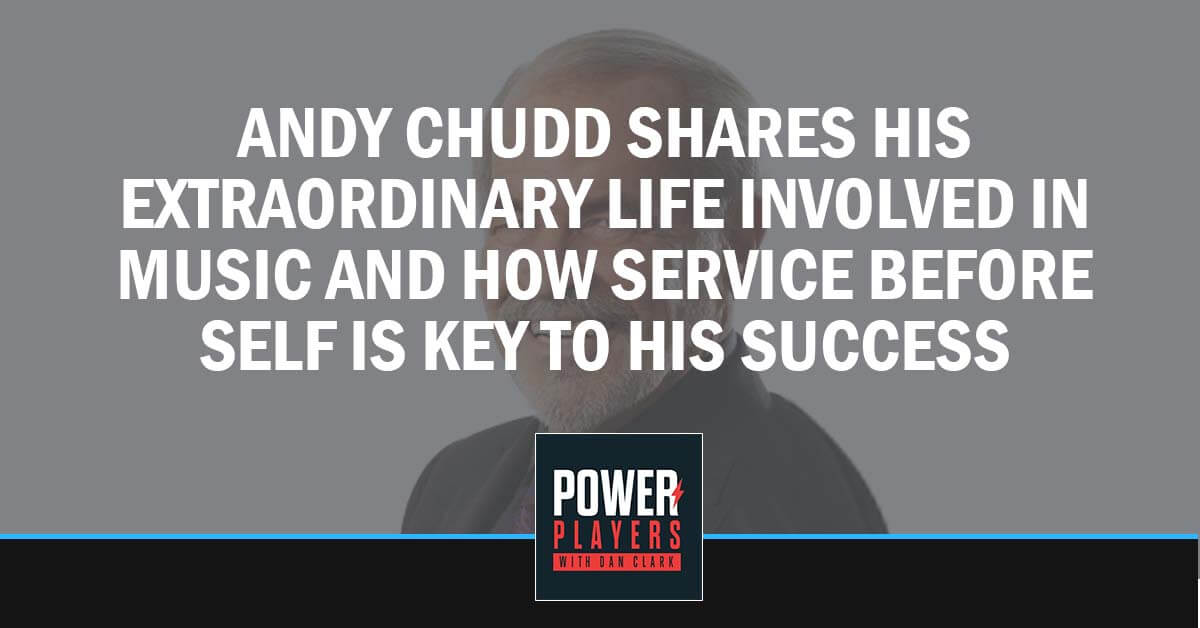
Music connects people. In this episode, Andy Chudd shares his extraordinary life involved in music, from seeing icons like Frank Sinatra and Elvis Presley to working with legends such as Fats Domino. Andy’s experience with music was magical. In his conversation with Dan Clark, he discusses his work and life in music and shares how his passion for service before self became key to his success. Listen to beautiful stories of how he and many others have helped families through their work. Learn more about his charitable works and how to get involved with different organizations by tuning in.
—
Andy Chudd Shares His Extraordinary Life Involved In Music And How Service Before Self Is Key To His Success
This is an interview with Music Industry Mogul, Entrepreneur, Automatic Car Wash Pioneer, and Philanthropist Andy Chudd. Thanks for spending some time with me. In this episode, my dear friend and mentor, a literal hero to thousands of families in Utah, Andy Chudd, son of record label Owner, Manager, Superstar, Popstar, Fats Domino, and Philanthropist ties to the Karl Malone Foundation through Bailey Basketball Camp’s Make-A-Wish Foundation, Fireman & Friends for Kids and the incredible Mascot Bowl shares his extraordinary life involved in the rock and roll music revolution surrounded by Elvis, Little Richard, Buddy Holly, and Chuck Berry in New York, Las Vegas, and the Hollywood Bowl in Los Angeles.
He’s giving us the inside glimpse into how each of us can use our wisdom, experience, and influential platform to make everybody around us better through service before self in business and in life. This is one of the most unique individuals you will ever have the privilege of meeting and listening to, if you’re a music fan at all, Andy Chudd.
Our guest is unbelievable because he will remind us that in a patriotic mindset, America without soldiers is like God without angels. Regardless of your religious tradition, we have to understand. I’m begging you to buy into my belief system that when we pray to God, He always answers our prayers through other people. When you have extraordinary things happen, or you have ordinary miracles that seem to occur most of the time, in fact, I would suggest that all of the time, there’s at least one human being behind making that miracle turn into a reality.
My guest is someone who is the poster child that validates there are angels among us, people looking out for the underserved, people with their heads on a swivel like a linebacker on a football field, looking for ways to turn their success into significance so that they can lift up the lonely. They can comfort the alone. They can help feed the homeless, clothe the homeless, shelter the homeless, and do whatever is required to lift up everyone in our community.
When they leave, everybody says, ”I like myself best when I’m with you. I want to see you again.” I’m talking about my dear friend, my mentor, a hero to thousands in the Intermountain West, a gentleman by the name of Andy Chudd. You’re smiling. You’re blowing off this introduction like, “Come on, Clark, calm down,” but someone needs to delve into the humility of this angel on earth. It’s my pleasure to expose his generosity in the best way I can through stories, not just a human being who’s a serial entrepreneur who’s been successful as a businessman and as a business consultant, helping others build their business, surprise.
I want to take you all the way back to his beginning because he grew up in an interesting home and had an interesting dad. In that process of being part of the music industry with historic legends, you will know regardless of your age or interest and the questions will be surrounding what you learned from individuals who used their platform for good. They used their experience, their amazing talent, and network of people to make the world a better place, a happier place and allow us to escape our pain and suffering for a 90-minute concert to put a smile on our face.
All of those things have made you who you are, Andy Chudd, and it’s a long introduction. If you think about what I’ve said, I challenge all of us to learn from his heart as he connects it with his head and not learn from his experiences, but plugin and play ourselves into his experiences with the challenge. Could you do that? I would say, yes, we can if we think and we take action like Andy Chudd to reach out to his circle of friends and network to help him do what he wants to do to make the world a better place. Andy Chudd, my introduction keeps going on. I got to stop and ask you, how are you?
I’m good. I need to take you on the road with me as an opening act. I wouldn’t have to do anything. I walk up, say, “Hi, thank you much,” and walk off.
Andy and I have known each other for many years. I will go to a charity event. I’ll buy a table. We’ll try to participate as social entrepreneurs and support these noble causes. Every single time we’ve ever attended any significant gala or significant fundraiser, there’s Andy Chudd and his beautiful wife, Peggy. That proves true that we do become the average of the five people we associate with the most. We must be willing to pay any price and travel any distance to associate with extraordinary human beings. In order to attract an extraordinary human being, you must first be an extraordinary human being.
Take us back. We got great seats. We’re on the fifth row of a country act in a little big town that came into town, and I’m excited and all of a sudden, Andy’s on the front row. He stands up to stretch and we get eye contact. He invited me as his guest to the Bob Dylan concert. We’re in the fifth row. He is the most connected person on the planet in Nashville, Salt Lake City, Los Angeles, New York, and most likely in Bangladesh. He is connected in Thailand and we’ll get to that hopefully. Andy, take us all the way back. Growing up in a musical household with a dad who was a music icon, he had his own record label. Take us all the way back to your earliest memories of growing up and what you learned in that creative environment.
The great thing about growing up in the time I grew up is as much magic happened in my house and in my life was all music-related. My father started Imperial Records in 1947 in Los Angeles. He had previously had a label called Crown Records in New York that he sold. He went to LA with the idea that he was going to sell what was not a big market. That was called race records back in those days. He had African-American artists and Latino artists and he dealt with their radio stations.
When I say theirs, I mean Hispanic radio stations and Black radio stations. The cool part for me was I grew up around it. Music was all around me. My father would come home from the recording studio and throw a disc on the record player. We would get to listen. We got to the point where it was a big part of my life. I cared more about music than just about anything else. I got to do things that other children didn’t get to do. I was in the recording studio.

Life In Music: These are things that I knew to be true and real. Now, they’re coming to life in front of my eyes.
It was 1955 or 1956, and the studio guy named Bunny Robine was looking for a specific sound. He was a genius sound engineer. You got to remember this was direct to disc and then reel to reel. This is not stereo yet. To get an echo sound, Bunny ran a microphone into a toilet bowl and a speaker on the other side of the toilet bowl. That was the first echo chamber. It’s being around people like that, being around genius musicians like Earl Palmer, Hal Blaine, and Tommy Tedesco. Not a lot of people know their names, but Earl Palmer is the most recorded drummer in the history of the world and so was a friend, Ray Brown on bass.
All of these people molded my tastes in music by being around them. My brother and I grew up in a magical time. Your dad owned a record company. We got to go to Disneyland the day before it opened. We got to go to red carpet events for movies where people even now dream of them. All we cared about was, “Did we get free candy and popcorn until we bury ourselves?” We grew up in a magical time where my brother and I used to get shuffled off to the movie theater every Saturday. It was 2 movies, 2 cartoons, and a newsreel. That cost $0.20, then you got another $0.25 for a candy bar and a drink. I’m 72 on 2022, so it’s not that long ago, but I look at how magical it was.
You are Jewish. You grew up a Jack Jew, though. Once a Jew, always a Jew. You were in the midst of race records focused on African-American and Latino-Hispanic artists dealing with their demographic and fan base. It had to teach you at the lowest, deepest, most amazing, most significant level of racism that the same God who made you and me, too. That was in the historical backdrop of brutal racism. Yet you were being schooled, unaware perhaps of the significance of humanity and that the underserved are underserved regardless of race, gender, religion, or ethnicity. How cool is that now manifests itself in your elderly years when you’ve retired and you have more time to be a philanthropist?
The amazing thing is the way we were brought up. We had an African-American housekeeper that was a member of the family. He was not allowed to be treated as anything less than a member of the family. That alone had a long-lasting effect on me, like Fats Domino. If you’ve seen the new Elvis movie, a part of my life was in that movie. When Elvis announced that he was coming back in 1969 to Las Vegas, he had Fats Domino, who I later managed on the stage with him. They were addressing Elvis as the King of Rock and Roll. He says, “You wanted the King of Rock and Roll. That’s him right there, Fats Domino.” These are things that I knew to be true and real. Now they’re coming to life in front of my eyes. That’s pretty cool.
In 1969, Elvis from Memphis was the blue-eyed brother. He was the guy. As you look in that movie, record producers and icons in the music industry were listening to a recording of Elvis singing, and they thought he was Black. He illuminates the significance of Fats Domino as the King of Rock and Roll. Think about the movement that you were a major part of bringing race relations to where we need them to be.
I’m not a woke guy. I have friends that are Black, Mexican, and Asian. I don’t even know what to call them anymore without offending somebody. I have friends that are just my friends. I traveled for a good deal of my early twenties as the only white guy with a Black band in places where there was still a good deal of issue there. The Civil Rights Amendment was passed in 1965 and in 1970. I was on the road and I had some amazing experiences. A guy named Rick Coleman wrote a book called Blue Monday: Fats Domino and the Lost Dawn of Rock ‘n’ Roll. He puts a number of things about myself, my dad, and Fats and brings things into line.
Getting back to your original question, it was a magical time. We were around Ricky Nelson at the time. Ricky was on a hit TV show called The Adventures of Ozzie and Harriet. In those days, TV shows were not owned by the network. They were owned by the sponsors. My dad and Ozzie Nelson, who was a graduate lawyer from Rutgers that never practiced, got on a plane, went to Eastman Kodak, sat down with them, and said, “We need to cut the last three minutes of the show and put on one of Ricky’s songs with girls screaming in the background.” That was a forerunner of MTV because they gave him a test market of 2 and it went for 12. That was amazing.
Once again, being around Ricky Nelson, my brother and I were in Cashbox and Billboard magazines because they were wanting to kiss my dad’s rear end and wear hula hoops. The company Wham-O came to my dad and said, “We’ve got a toy that we think is going to take the world by storm. Can you write a song?” He says, “I can’t, but I can get somebody to.” They did. They put on a song called Hula Hoop. The next thing you know, my brother and I are in Cashbox Magazine, teaching people to hula hoop. In our garage, I swear there were 100 of them. All my friends had them.
Those things were magical things. Seeing guys as Frank Sinatra live, I can’t convey possibly how magical that was to be around that much musical talent. My brother, Reeve, is not of the same taste. He’ll tell you that the reason he saw The Beatles, Jimi Hendrix, and Simon Garfunkel is I dragged him physically to the concerts, but he was always grateful after the fact. He’s grateful at age 71 to have those memories. Those are unbelievable times.
For me, Fats Domino was a genius. He was not highly educated, the sweetest man on the planet, but he’d come up with a tune. Dave Bartholomew was his arranger, producer, friend, and band leader. Sometimes he traveled with Fats on some of our jaunts. He was a musical genius, too. He played with Lionel Hampton. He played with Dizzy Gillespie. The guy was legendary. Both Fats and Dave are members of the rock and roll hall of fame in the first class.
You’re talking about legendary Ricky Nelson’s in the Hillbilly Hall of Fame. My dad started a singing postman from Florida named Slim Whitman. He did Rose Marie, Indian Love Call, and stuff like that. My father would come up with these wild ideas because he yodeled. If you ever want to hear something funny, he ended up recapturing his masters and releasing them himself. The best interview you’ll ever see is Johnny Carson and Slim Whitman.
Those are things that I lived. I was around. We didn’t have camera phones and all that stuff. When I was managing Fats in late 1970 and early 1971, I had booked him at the Flamingo Hotel in Las Vegas in the lounge. He wasn’t in the main showroom. He would do shows at 11:00, 1:00, 3:00, and 5:00, 45-minute sets. I still have those original contracts. One night I walk in and there’s a guy in a white suit and a Panama hat in front of me, blocking the entrance to the dressing room. When I went to walk past him, I realized that’s Colonel Tom Parker.
Seeing guys such as Frank Sinatra live, you can’t possibly convey how magical that was to be around that much musical talent.
Were you nineteen?
No, I was twenty years old at the time. I walked in there and in front of him was the King.
Colonel Tom Parker is the crooked sleazy manager you’ll see in the Elvis movie.
Through that movie, you see the one thing that even Elvis agreed to, and that’s the Snowman. I have my membership card part-time, but I spent about twenty minutes with him twice. I didn’t notice the accent that Tom Hanks uses in the movie anywhere near as pronounced as it was. There was something unique about it, but I didn’t think of him as from the Netherlands. I was a kid. I was overwhelmed. My heart’s pounding.
He asked me what I was doing there. I said, “I’m Fats’ manager.” He goes, “How old are you?” I said, “My father is Lew Chudd.” “I knew Lew Chudd.” He gave Fats his start. Remember 1948, my father started Fats. He was nineteen years old, making $19 a week working in a bed spring factory and living in a house without indoor plumbing. His first royalty check for a song called The Fat Man was $50,000. He bought the house his mother lived in, the houses that he lived in, knocked them both down, and built his mansion in the Ninth Ward, which is a slum of New Orleans.
That was devastated and decimated by Hurricane Katrina.
He had a Rolls-Royce. He had Lincoln’s, never got damaged. I don’t know if that would be true now, but it was true in the ‘70s.
He stayed true to who he was because of the influence of Andy Chudd, your dad, Lew, and the folks that you surrounded him with, I believe that.
We did some things. He used to palmate his hair. I said, “You need to bring yourself into the next century. We need to have you a natural hairstyle.” He fought against it. From then until the day he died, that’s what he used as his trademark. I did some things that were out of his comfort zone. He didn’t like talking at all. I had him do talk shows, but we did some amazing shows. We did Carnegie Hall with icon Tina Turner and the tickets were sick. We did a tour with a guy named Richard Nader. He is the guy that gave me the idea to go to Fats and say, “I need to manage you.”
He had started these concerts that were a carbon copy of what Alan Freed used to do in the fifties. Alan Freed would do these rock and roll cavalcades. He would have 10 bands and they would do 3 songs a piece, travel on buses and go from city to city. Richard put together a bunch of those. One day, there was a guy named Chuck Freeze at Metromedia. He and Jerry Eisenberg put together the idea for a movie called Let the Good Times Roll.
That was magical for me because I got to be a part of that movie. There were Fats, Little Richard, Chuck Berry, Bill Haley and the Comets, The Coasters, The Drifters, The Platters, and Chubby Checker. It was unbelievable. We did a series of concerts. We did Madison Square Garden. We did Syria Mosque in Pittsburgh. We did Cobo Arena in Detroit. We did some shows in Vegas and all of those became part of where they put the movie together.
One of the producers of that movie, Steve Tisch, ended up being one of the producers of Forrest Gump. He was Laurence Tisch’s son. It was an amazing group, but the one person I left out was Bo Diddley. Bo Diddley’s manager, Marty Otelsberg, and I became good friends. We tried to get booked on the same shows. Chuck Berry was an amazing character. Little Richard was larger than life, but I got to be around those people. That was like magic. It’s stuff that’s up here and it’s on film. If you go on to Let the Good Times Roll, 19 minutes in, there I am, long hair, more of me, but it was unbelievable.

Life In Music: That was like magic. It’s stuff that’s up here and it’s on film.
Take us back to when you met Tom Parker and he said, “How old are you?” Finish that story where Elvis is behind him. What happened that evening?
I was overwhelmed. He said, “You’re his manager.” I said, “Yes, my dad started Fats. I came to him with an idea and he loved the idea.” He was an idea guy, whether good, bad, or indifferent, not a good guy. I had no idea that he kept 50%. I was happy with 10%. He was a lot smarter than me. When he found out how old I was, I was managing Fats, and I indeed had him under contract. He gave me a card that I carry to this day as a part-time member of The Snowman’s league.
The first shot of Parker in his office has that exact logo. I’ve been showing this for twenty years and telling the story about Fats being brought on stage by Elvis for twenty years. Now it’s come to fruition in the movie. That’s cool, but I have this feeling in my heart that music soothes my soul. It’s where I go when I’m not in a good place. It’s what I do.
It’s an interesting connection that we have with Tom Parker. I was a high school senior in Salt Lake City, Utah, in 1973. I had a steady girlfriend of several years, and I had promised her that we were going to see Elvis, who was on his comeback tour. He was in the Salt Palace and I had a friend. I won’t throw him under the bus by name, but what a dog. He said his dad had connections and that we could have tickets.
I promised my girlfriend. I went to pick her up and we were all dolled up. We were fired up to see the King. I went up to the avenues to pick up the tickets from my buddy and his dad answered the door and said, “I’m sorry. My son’s been lying to you. I have no connections. I’m sorry. We don’t have tickets.” I go to the car. I tell my girlfriend, “Sorry, we don’t have tickets to Elvis. What else do you want to do tonight?” It did not register. She said, “Let’s go. We’re going to be late.” I’m like, “We don’t have tickets. What do you want to do? “She goes, “Let’s go.”
Anyway, we parked the car. We went in, I went to the ticket counter, and nobody was around. I asked the ticket lady. I said, “Excuse me, do you have any tickets that have been turned in? Any tickets that are still available? I’ve promised my girlfriend. It’s a special occasion.” She says, “I’m sorry. We’re completely sold out.” All of a sudden, I turn, and here’s this larger-than-life man in a white suit and a Panama hat. He says, “You want to see the king?” I said, “Yes, sir.”
He gave us two tickets and we went in the 14th row, not on the floor, but up a little bit. We were at eye level with Elvis Presley. I was 1 of 2 men in that entire arena of 15,000 to 20,000 women watching Elvis Presley put on the greatest show I’ve ever seen other than Michael Jackson in his same category. That memory of Elvis to this day inspires me that he gave everything he had when less would be sufficient.
He never took a second off. He was perspiring. He was such an entertainer, truly the King of the show, not just the King of rock and roll. I wanted to use that as a segue into your experience, seeing him in concert that we saw live footage a little bit in the Elvis movie. He gave it. He perspired. Did you see that live? Did that inspire the other artists that saw him step up their game?
I was fortunate. I got to see Elvis probably ten times live. The first time though, was the third show that he did in Las Vegas at the International Hotel. My stepdad was a dentist named Frank Greenbaum. He helped me get the tickets and all my connections said nothing. I went to see him. I had my elbow on the stage. I had never seen him before, but I had loved his music since I was little.
He came out just like in the movie, walking on stage backward and doing the karate stuff. I could have been a little girl because I was squealing. I guarantee you. That guy had me in the palm of his hand from the first song to the last song. When he said thank you, you knew him in it. You knew he was that. In that two-hour experience, he was a part of you, you were a part of him, and it gave him strength. In the end, he went down on his knee and sweat was dripping off of him. He was wearing those moody polyester jumpsuits and he was fit.
Let’s make this a segue. In that situation, when you heard the announcer say, “Elvis has left the building,” that brought tears to my eyes when I heard of his death in 1977, which was only four years after I saw him live. What a tragedy, dying in his 40s, but what a legacy he left. One of the things that ties me to him is in an interview that he did with Ed Sullivan on The Ed Sullivan Show, where they did not allow the cameras to film Elvis below the waist. That’s where we were in the 1960s.
When I remember seeing him in The Beatles and The Beach Boys, all these folks coming out of the scene in The Ed Sullivan Show and Ed Sullivan asked Elvis, this humbled gentleman who respected authority and respected his elders, “Elvis, why do you shake? Why do you have to wiggle so much?” He goes, “Mr. Sullivan, the music makes me do it. I don’t know. I can’t hold still.” That’s the segue to you, my friend.
There’s a magical concept of charity.
Why do you give so much of your time? Why do you give so much of your resources and your money? Why do you give so much of your love? I believe it’s because love makes you do it. I believe it’s the service before self that makes you do it. There’s a reason why Elvis could not hold still. He brought it on every note and on every song.
Every day you wake up. What I understand as a dear friend and as an observer of service before self, you wake up, “What can I do to make somebody better? What can I do to lift up someone’s heart and to make our community brighter and full of light and love?” Let’s talk about your charity work and what you’re most involved with in your service before self mentality.
I’ve got two pet projects and a couple of others because there’s one I’ve been with in excess of four decades. My wife Peggy has been inspirational to me. When we first got together, I was already involved in doing charity stuff and all this stuff. She would help. She developed her own, went off on her own, served on the national board of the adoption exchange, and did all sorts of stuff.
This was for dogs?
No, the adoption exchange for kids.
How did she get into dogs?
We got a lot of dogs. She got with Intermountain therapy, animals with the dogs. She has Utah friends with Basset Hounds because we have a bunch of dogs. I’ve been a fortunate guy. Both my brother and I were raised as children of privilege. We traveled first class and stayed at the nicest hotels. Our grandparents lived back East and we got to go visit them all the time. My grandpa was the magic man. He managed a restaurant in Central Park called the Tavern on the Green. My brother and I were talking about doing stuff. He did stuff that made me think to myself, “One day, I want to be a grandfather like him.”
It was 1964. I was 14 years old, not even. The Beatles movie, A Hard Day’s Night, comes out. I said to my grandfather, “I want to go see A Hard Day’s Night.” “What’s that?” “It’s the Beatles.” “Okay.” We go to the Paramount Theatre on Broadway at 9:30 in the morning. The theater is three-quarters full with my brother, my grandfather, and myself. My grandfather slept through the whole thing, but he took us. He was always, “What would you like to do next, son?” That was the upbringing that I had. He was a magic guy. My dad was a tough guy, but my grandfather was unbelievable.
I had some pretty good role models. My dad was good with charity, civil rights, and a lot of the things that I’ve carried with me all these years. Regardless of the disagreements that my dad and I had, there were certain things that he did that are heavily embodied in both myself and my brother. It’s amazing. As with anything else, you find that sweet spot. With me, it was little kids. I got involved with the Make-A-Wish Foundation of Utah before it was the Make-A-Wish Foundation of Utah. I did some stuff with Karl Malone Foundation for Kids. I helped with thorough Bailey’s Basketball Camp for eleven years and Brian Russell Foundation.
I helped raise money for the troops, selling silicone wristbands and engaging my connections in music to help us spread the word and not go to them for money. My latest deal is with a man named Jon Gossett, who has another charity called Life’s Worth Living Foundation. It’s an anti-suicide charity. He’s one of my heroes. Dan Snarr, a sculptor, came to me about with a sculpture of Jerry Sloan. Jerry Sloan was a great man. One of the best storytellers I’ve ever met in my life with a great sense of humor and a kind guy.
He’s the NBA Utah Jazz Head Basketball Coach who took us to the NBA finals twice against the Chicago Bulls and Michael Jordan.
In ’97 and ’98. At any rate, they came to me. John introduced us to Jon Absey, who is my partner in crime in a lot of charity. Jon was in the Utah Jazz Bear for 25 years. We’ve been friends. The first appearance he ever made in the Jazz Bear was at my business.

Life In Music: It was selfish in this because I love the feeling I get when the magic happens.
Incidentally, because he’s been a guest on my show, you have to look up his episode. He proves true that it has nothing to do with the costume. It’s all about the character and the human being who puts on the suit. It has nothing to do with this suit. He’s unbelievably charitable.
His message of kindness, he would commit us to things. I go, “Jon, there are not enough hours in the day to do all of this, but we did everything. Jon had a reading program. He had a, “Don’t do drugs,” and anti-bullying program. He was the antithesis and the most decorated mascot in professional sports history. He’s my partner in crime. We have an organization called Working For Charities. We met with these two guys, saw this statue, and I’ve shown it to you. It’s the likeness of Jerry. Even the gesture is spot on.
He’s flipping off Jerry Reinsdorf, the Owner of the Bulls. I’m kidding.
Wouldn’t that have been cool? If we had our way, it would be placed on the Plaza, facing Jon and Karl’s statues as lead coach. I’m doing an event with John Absey to salute two other great guys, Coach Frank Layden and Coach Ron McBride. I’m so excited about that. I can’t tell you but getting involved in all of these things makes my heart sore. I do this out of selfishness. It sounds good that I did this and I did that. All of that and $3 will buy me the same cup of coffee at Starbucks. Maybe it’s $4 now. I have boxes of community service awards that are in boxes because I don’t have walls to put them on.
I didn’t do it for them. I did it for me and that’s a total admission. I was selfish in this because I love the feeling I get when the magic happens. You and Kelly have shared two events with us that I’ve been trying to get you to come to for years. In 2021, you came to not one but both, and you’ve bought in. I’ve done that with a number of my high-net-worth friends that have gone, “You’ve been doing this all this time.” I said, “That’s right. I’ve been bugging you to come,” and now they’re in. We have a Mascot Bowl. 2022 is going to be our 20th year. We bring Jon. He brings in mascots from the NBA, the NFL, the NHL, and every single mascot from every single college allowed from St. George all the way up to Logan.
We put 34 mascots on the field and they play a game against eighth graders. They get blindsided and they get beat up, but God bless them. They come here. We have people that pitch in, Rich Aggett and Johnny Richie come in and give $1,200 watches to all the guys that flew in. You bring black Clover hats to all the guys. They want to come back. They don’t get paid. We pay for their airfare and a couple of nights at a hotel and pizza. It’s not like they’re seeing a grand America either. That being said, it creates a great community event that allows us to do another amazing event. That’s our Christmas job.
For years, we’ve been taking anywhere from 300 to 500 kids Christmas shopping, and then COVID got us like everybody else. We didn’t do it for a year. In 2021, we decided we were going to do it, but the buses had to be disinfected and all this other stuff. Rather than giving a kid $100, we picked 25 needy families. We brought in 25 of our sponsors and we paired them up.
All of you guys were told, “You can’t give any extra money,” but Dan Clark, Mark Atkin, Aaron Grant, Brady McIntire, Ryan Bowen, and Michael McKenry come in and break the rules. They go. We gave them each $500. They get to do anything they want, but the whole family got to shop. The one thing that we told our shoppers is, “Make sure the kids get their stuff first.” That happened and then what happens? We’re going to help them out to the car with their stuff. They’re peeling off the hundreds down.
They still had Christmas dinner. We’re cruising around Walmart with these shopping carts, $500 for the kids. I said, “Do you like this toy? Pretty cool deal.” He goes, “I got to get something for my mom.” They kept looking outside of themselves and saying, “I want this and this.” They were always looking out for their siblings and parents.” That’s what got us.
The reason I’ve told all my friends of privilege to bring their kids is that they see this. Here they are in a situation where they’ve got virtually hardly anything. They’re being put in a situation where, all of a sudden, they’ve got more money than they’ve seen. What do they do? They want to share it. That is the thing that, over and over, year after year, amazes me because it never fails to happen. It never fails to capture guys you. You get a tear in their eye and even the tough guys.
Are you saying I’m a wuss?
No. Even the tough guys cry. It is that and the wives are affected like Jon and Janae Moss. Jon has a huge company. Janae is involved in charities and Jon funds them all. They came to this event because I begged them to. They were like, “We’re in.” It’s amazing people doing amazing things. The great thing about that is guys like Ryan Bowen, Aaron Grant, Mark and Roma Atkin, and all these people. I did that and then I’m pretty heavily involved with this guy named Tim Ballard in this organization called Operation Underground Railroad. As a matter of fact, he’s with Mel Gibson, but he was honored by the President of Ecuador. We’re talking about real-life heroes who were introduced to me by Sean Reyes, our attorney general, who’s one of my dearest friends.
Surround yourself with good people.
Tim Ballard’s also been a guest on our show.
As has Ryan Bowen?
Exactly.
You need to do Aaron Grant and then you’ll have the whole group.
Let’s wind down. We could talk forever, Andy Chudd. Let me try to summarize what you’ve been teaching the world. Everybody has a story, but it’s not your story to keep if it can help heal the world and help serve our fellow men and women in our community. As you’ve been checking the boxes of all these influencers in our community here in Utah, I realized as I’ve been taking a personal inventory that I was introduced to them by you.
What are we willing to do? We become the average of the five people we associate with the most. Let’s wind down our interview here with Andy Chudd and please re-read so that you can take a note and write down one of these magnificent charitable organizations that Andy has founded or he supports wholeheartedly. Surely you can find it in your heart to give to at least one of them and help Andy manifest himself as one of God’s most noble angels on earth. I’m dead serious when I say that.
The best summary I could share is that what goes around comes around. Karma is a real deal. When you’re on top of the world, we have a tendency to change our attitude. When we fall, we know who our real friends are. We need someone to come into our life and help us up. Andy, without getting too personal, you’re in full recovery, which I believe is the most inspirational part of you. You get knocked down 7 times, you get up 8. That’s the epitome of who you are. The organization of friends and gracious souls was brought to a head when we were in Walmart.
At the end of the orientation, we were introduced to these 25 families and assigned to 1 family at a time to go up and down the aisles and give them this $500 Christmas. One of the gentlemen that was part of our team that had the privilege, honor, and sacred opportunity to escort the family up and down the aisles. He runs into a friend. He was startled and they get eye contact. He had been a business partner. He had made maybe the most money in their office working as financial advisor.
All of a sudden, the King, at one time, is the lowest end of the totem pole of the economic ladder. This gentleman, who was one of our dearest friends, was put in a position because of Andy and his love of humanity to reach out to someone that he wasn’t equal to lift him back up and make sure he left that Walmart, reminding him and remembering that he was also and still remain and equal, that what goes around, comes around. That’s what you’re going to be known for when you take your last breath at age 162 because you can’t die before that. We need you.
I don’t want to live to be 162.
We need you too much. There you have it. Andy Chudd, how do we tie into one of your charities?
Two things? In the Jerry Sloan deal, I want to get 1 million people to give $1.

Life In Music: Have money to set aside for next year because we’re always looking for ways to help.
Where could they send it?
They could send it to Working for Charities. The bottom line is we’re going to be rolling out the actual fundraiser with the help of some amazing friends. For the Mascot Bowl, it’s Firemen & Friends for Kids. That’s 501(c)(3). That’s the one that takes kids Christmas shopping. We raised money for the Mascot Bowl first, but wouldn’t it be magical if we could get 100,000 people each, you give $1?
$10 or $20.
You’ve got the funding for the Christmas shops. You’ve got the funding for the actual Mascot Bowl. You can put money aside. There’s a magical concept of charity. Have money to set aside for next year because we’re always looking for ways to help. You surround yourself with good people. Trust me. I’ve surrounded myself with enough of the bad ones. I’m starting to know what the good ones are. You talk about Sean Reyes, you, Doug Cassetta, Ryan Bowen, Aaron Grant, Mark and Roma Atkin, and Tim Ballard. I’m a fortunate guy. Most of all, I’m fortunate because I have Peggy, my brother, Reeve, my sister-in-law, Mary, and seven dogs.
As a reminder, he is a man who grew up in the ‘60s. He knows the most commonly used word throughout the entire ‘60s. It happens to be air.
Important Links
- Andy Chudd — LinkedIn
- Blue Monday: Fats Domino and the Lost Dawn of Rock ‘n’ Roll
- Jon Absey – Past episode
- Tim Ballard – Past episode
- Ryan Bowen – Past episode
- Working for Charities
- Firemen & Friends for Kids– Facebook
About Andy Chudd
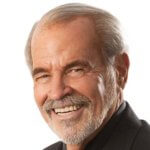 Highly talented and accomplished senior executive offering proven experience in marketing, corporate communications, public relations, strategic business development, community outreach, and philanthropy.
Highly talented and accomplished senior executive offering proven experience in marketing, corporate communications, public relations, strategic business development, community outreach, and philanthropy.
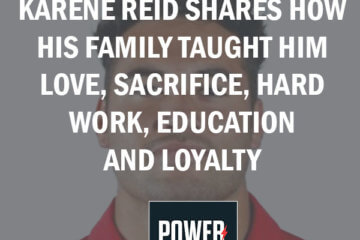
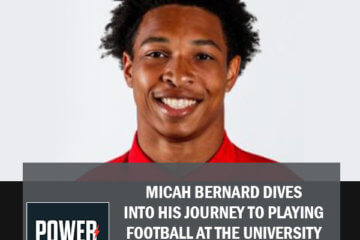
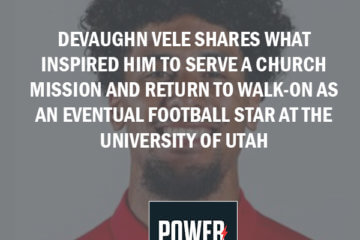
0 Comments